Welcome to the dynamic world of Forex trading, a realm where currencies fluctuate, fortunes are made, and the global economy gets a heartbeat. For those embarking on this exciting journey, understanding the basics and choosing the right broker can make all the difference. Best brokers for beginners play a crucial role in providing the necessary tools and support for novice traders to navigate this complex market successfully. This chapter is your gateway to becoming a proficient trader, offering a clear overview of the Forex market and the critical role of brokers in your trading success.
Overview of the Forex Market
The foreign exchange market, or Forex, is the world’s largest financial market, with a daily turnover exceeding $6 trillion. It’s where currencies are traded 24 hours a day, five days a week, offering unparalleled opportunities for traders to profit from currency movements. Unlike other financial markets, Forex has no physical location, operating instead as a global network of banks, institutions, and individual traders.
Forex trading involves buying one currency while selling another, based on speculation of currency value fluctuations. These transactions can range from complex hedging strategies by multinational corporations to simple currency exchanges by travelers. However, at its core, Forex trading is about capitalizing on the changing values of currencies around the world.
Essential Criteria for a Beginner’s Forex Broker
For beginners, entering the Forex market can seem like navigating a labyrinth. This is where choosing the right broker becomes paramount. A good Forex broker acts as your portal to the markets, providing essential tools, resources, and support to help you make informed trading decisions. They offer a platform for trading, along with access to market data, analysis, and educational materials to enhance your trading skills.
Choosing the right broker is not just about the fees or the platform they offer. It’s about reliability, regulatory compliance, customer support, and the range of assets available for trading. A broker that aligns with your trading goals and preferences can significantly impact your trading experience and success. Whether it’s tight spreads, a user-friendly platform, or exceptional customer service, the right broker should meet your specific needs as a beginner in the Forex market.
In the following chapters, we’ll dive deeper into how to select a broker that best suits your trading style, the essential features to look for, and the top brokers recommended for beginners. Stay tuned to unravel the complexities of Forex trading and embark on a journey toward becoming a savvy Forex trader.

What Makes a Best brokers for beginners?
Embarking on the Forex trading journey comes with its challenges, especially for novices in the field. The right Forex broker can be a lighthouse in the stormy seas of the market, guiding beginners with the tools and resources necessary for a successful trading voyage. Let’s explore the key features that make a broker beginner-friendly and why they are crucial for newcomers to the Forex world.
Educational Resources
One of the most valuable assets a beginner-friendly broker can offer is a comprehensive suite of educational materials. These resources play a pivotal role in transforming novices into informed traders. Look for brokers that provide:
- Webinars and Online Courses: Live or recorded sessions covering Forex basics to advanced strategies.
- E-Books and Guides: Written materials that offer deep dives into trading concepts, market analysis, and risk management.
- Glossaries: A collection of trading terms and definitions to help you decode the complex language of Forex trading.
- Demo Accounts: Practice platforms where you can trade with virtual money, allowing you to learn without risking real funds.
Robust Customer Support
The path to mastering Forex trading is fraught with questions and uncertainties. Beginner-friendly brokers understand this and offer robust customer support. Essential support features include:
- 24/5 Availability: Forex markets operate around the clock; so should your broker’s support team.
- Multiple Channels: Look for brokers that provide support through live chat, email, and phone to ensure you can get help in the way that suits you best.
- Language Accessibility: A broker that offers support in your native language can significantly enhance your understanding and comfort level.
- Quality of Assistance: Support staff should be knowledgeable, friendly, and patient, ready to assist with both technical and trading-related queries.
User-Friendly Trading Platform for Best brokers for beginners
The trading platform is your main tool for interacting with the Forex market. A beginner-friendly platform should be:
- Intuitive: A clear and understandable interface is vital. You shouldn’t need a manual to navigate the basic functions of your trading platform.
- Feature-Rich: Look for platforms that offer comprehensive charting tools, real-time news feeds, and easy order placement.
- Mobile Trading: In today’s world, the ability to trade on the go is essential. A mobile app that mirrors the desktop experience ensures you’re never out of touch with the market.
Account Flexibility and Low Minimum Deposits
Starting small is often wise for beginners. A broker that offers account flexibility and low minimum deposits can help you ease into the world of trading without a significant financial commitment. This approach allows you to experiment and learn with less pressure.
Understanding Regulations and Safety for Best brokers for beginners
In the Forex market, the safety of your investments hinges significantly on the regulatory status of your broker. Navigating through regulatory frameworks can be daunting for beginners, but understanding the role of these governing bodies is crucial for ensuring your capital is protected. This chapter demystifies broker regulations and underscores why they are pivotal for every trader’s peace of mind.
Explanation of Regulatory Bodies
Regulatory bodies oversee and enforce standards within the financial industry, ensuring that brokers operate fairly and transparently. These entities vary by region, each with its mandates and jurisdictions. Key global regulatory bodies include:
- United States: Commodity Futures Trading Commission (CFTC) and National Futures Association (NFA): These bodies regulate the commodity and futures markets in the U.S., ensuring financial integrity and protection against fraud and abusive practices.
- United Kingdom: Financial Conduct Authority (FCA): Known for its stringent guidelines, the FCA oversees financial firms providing services to consumers and maintains the integrity of the UK’s financial markets.
- European Union: Cyprus Securities and Exchange Commission (CySEC) and other national regulators: CySEC is one of the most well-known regulators within the EU, often overseeing brokers that serve international clients due to Cyprus’s strategic location and EU membership.
- Australia: Australian Securities and Investments Commission (ASIC): ASIC enforces and regulates company and financial services laws to protect Australian consumers, investors, and creditors.
These are just a few examples of regulatory bodies. Each country may have its regulatory authority with specific rules and protections for Forex traders.
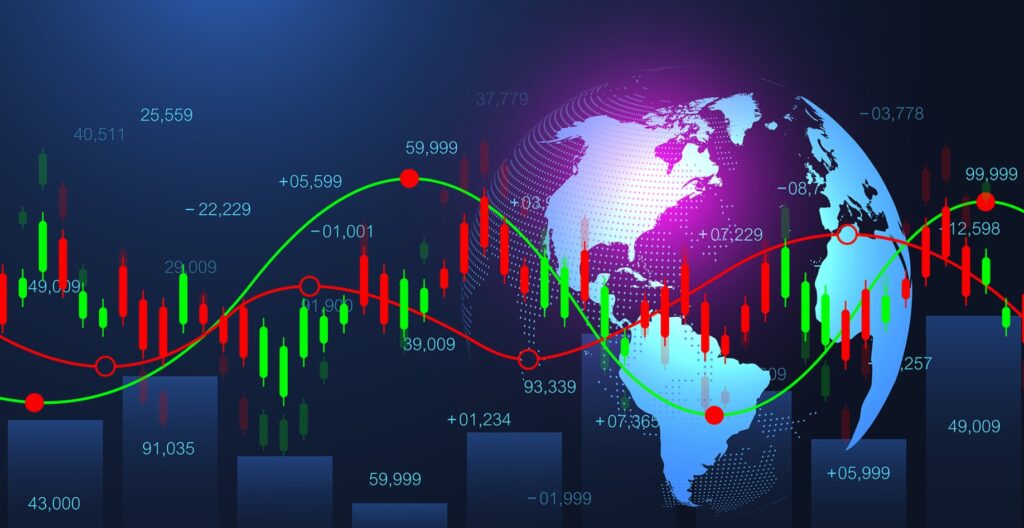
Why Regulation Matters for Traders to find Best brokers for beginners
Protection from Fraud and Malpractice
Regulatory bodies enforce standards that protect traders from fraud and unethical practices. Brokers must comply with strict guidelines regarding transparency, financial reporting, and client fund segregation. This compliance ensures that your broker operates with integrity and accountability.
Fund Safety
Regulated brokers are required to keep client funds in segregated bank accounts, separate from their operational funds. This crucial practice protects traders’ capital from being used by the broker for any other purpose, including business expenses or in the unlikely event of the broker’s bankruptcy.
Dispute Resolution and Compensation Schemes
Regulatory authorities often provide a framework for dispute resolution between traders and brokers. Additionally, some regulators have compensation schemes in place to protect traders if a broker fails. For example, the Financial Services Compensation Scheme (FSCS) in the UK protects investments up to a certain limit per person per firm in case of a broker’s insolvency.
Enhanced Transparency
Regulated brokers are required to provide clients with clear information about trading costs, risks, and terms and conditions. This transparency ensures traders can make informed decisions and understand the implications of their trading activities.
Account Types for Best brokers for beginners
As you step into the world of Forex trading, choosing the right type of trading account is as crucial as selecting a reputable broker. Forex brokers typically offer various account types, each with specific features designed to meet the needs of different traders. This chapter will guide you through the different types of trading accounts – demo, micro, mini, and standard – and provide insights on how to choose the best one based on your trading goals and risk tolerance.
Different Types of Trading Accounts
Demo Accounts for Best brokers for beginners
Demo accounts serve as the perfect starting point for beginners. They allow you to trade in real market conditions without risking real money. Features include:
- Risk-Free Trading: Practice trading strategies and get familiar with the platform’s features without financial risk.
- Real Market Conditions: Access to live market data and prices, enabling you to gain practical experience.
Micro Accounts
Micro accounts are designed for traders looking to make a small investment. They are characterized by:
- Low Capital Requirement: You can start trading with as little as $5 to $10.
- Small Lot Sizes: Trade in micro-lots (1,000 units of the base currency), minimizing risk exposure.
- Flexibility: Ideal for experimenting with strategies without significant financial commitment.
Mini Accounts for Best brokers for beginners
Mini accounts are a step up from micro accounts, suitable for those with a bit more experience and a higher risk tolerance. Features include:
- Moderate Initial Deposit: Generally requires a higher deposit than micro accounts, often around $100 to $500.
- Larger Lot Sizes: Trade in mini-lots (10,000 units of the base currency), offering greater profit (and loss) potential.
- Enhanced Market Access: Access to a wider range of markets and trading instruments.
Standard Accounts for Best brokers for beginners
Standard accounts are tailored for experienced traders with sufficient capital. Characteristics include:
- Higher Minimum Deposits: Typically requires a deposit of $1,000 or more.
- Standard Lot Sizes: Trade with standard lots (100,000 units of the base currency), maximizing potential returns.
- Comprehensive Features: Access to all broker services, including advanced tools and analytics.
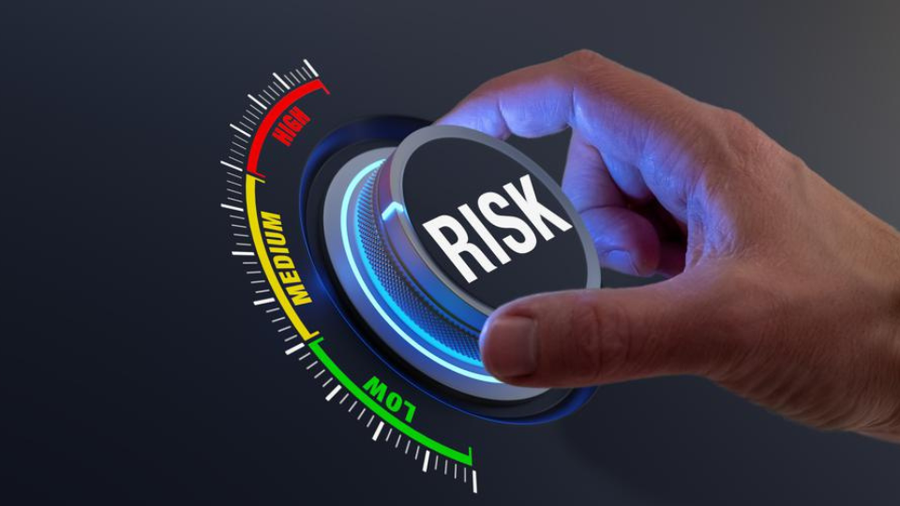
How to Choose Best brokers for beginners Based on Your Trading Goals and Risk Tolerance
Choosing the right account type depends on several factors:
- Financial Commitment: Assess your initial investment capacity. If you prefer to start small, micro or mini accounts might be more appropriate.
- Risk Appetite: Consider your tolerance for risk. Demo accounts allow you to understand market volatility without risk, while micro and mini accounts offer real trading experiences with limited risk.
- Trading Strategy: Your chosen trading strategy might require specific account features. For instance, day traders might prefer accounts with lower spreads and commission structures.
- Experience Level: Beginners should start with demo accounts to gain experience. As you become more comfortable, transitioning to micro or mini accounts can offer further practical learning before moving to a standard account.
Analyzing Broker Fees and Costs
Diving into Forex trading without understanding the associated fees and costs is like sailing into uncharted waters without a map. Broker fees can significantly impact your trading profitability, especially for beginners who are yet to build their trading strategies and manage their funds efficiently. This chapter will unravel the mystery of broker fees, including spreads, commissions, and other costs, helping you make informed decisions when comparing beginner-friendly brokers.
Spread, Commission, and Other Fees Explained
Spread
- Definition: The spread is the difference between the bid (sell) price and the ask (buy) price of a currency pair. It’s essentially the broker’s fee for executing your trade, represented in pips.
- Impact on Trading: A wider spread means you’re paying more to enter and exit trades, which can eat into your profits. Beginners should look for brokers offering low spreads to minimize trading costs.
Commission
- Definition: Commissions are fees charged by the broker on each trade, separate from the spread. They are usually fixed and charged per lot traded.
- When It Applies: Not all brokers charge commissions. It often depends on the type of account. For example, ECN accounts typically have lower spreads but charge commissions on trades.
- Considerations: If you’re trading frequently or in large volumes, commissions can add up. Compare the total cost of the spread and commission to find the most cost-effective option.
Other Fees
- Overnight or Swap Fees: If you hold a position overnight, you might be charged a swap fee, which is either earned or paid, depending on the direction of your trade and the differential in interest rates between the two currencies traded.
- Inactivity Fees: Some brokers charge a fee if your account remains inactive for a certain period.
- Deposit/Withdrawal Fees: Be aware of any charges for depositing or withdrawing funds from your trading account. These can vary significantly among brokers.
Comparing Costs Among Best brokers for beginners
When comparing broker fees, it’s essential to consider your trading style and frequency. Here are some tips to help you assess:
- Calculate Total Costs: Don’t just look at the spread or commission in isolation. Consider how often you’ll trade and the typical size of your trades to calculate total costs.
- Consider Account Types: Some brokers offer accounts with higher minimum deposits but lower spreads and commissions. Assess whether moving to a different account type could be more cost-effective based on your trading volume.
- Look Beyond Fees: While costs are important, also consider the broker’s reliability, regulatory compliance, customer support, and educational resources. The cheapest option isn’t always the best.
- Read the Fine Print: Ensure you understand all potential fees and charges. Contact the broker’s customer service if anything is unclear.
Practical Example
Let’s say Broker A offers a spread of 1 pip on EUR/USD with no commission, while Broker B offers a 0.5 pip spread with a $7 per lot commission. For a single trade of 1 lot (100,000 units), the cost with Broker A would be $10 (assuming 1 pip = $10), and with Broker B, it would be $7.50 (spread cost of $5 plus $7 commission), making Broker B the cheaper option for this scenario.
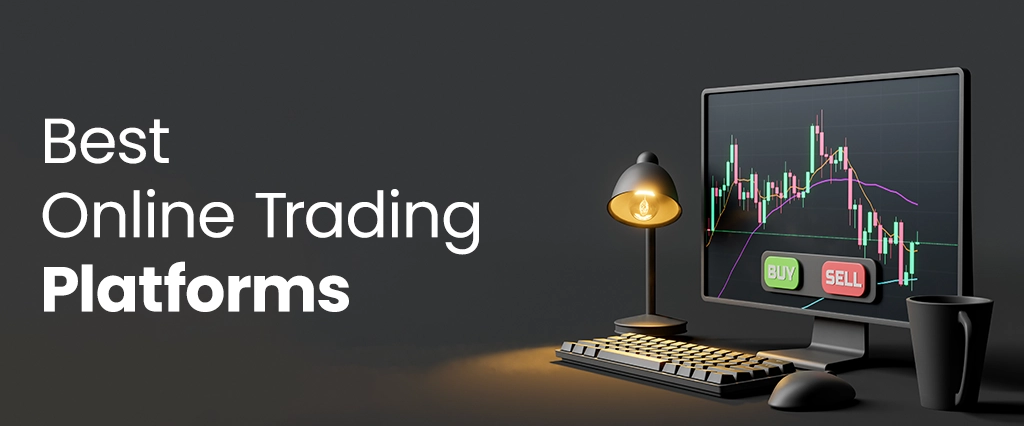
Trading Platforms and Tools for Best brokers for beginners
Navigating the Forex market effectively requires not just a keen understanding of market dynamics but also the right tools and platforms at your disposal. For beginners, the sheer variety of trading platforms and tools can be overwhelming. This chapter aims to demystify the most popular trading platforms, such as MetaTrader 4/5 and cTrader, and highlight essential tools and features that can enhance your trading experience from the outset.
Overview of Popular Trading Platforms
MetaTrader 4 (MT4)
MetaTrader 4 is widely regarded as the gold standard of Forex trading platforms, beloved for its ease of use, reliability, and comprehensive analytical tools. It offers:
- User-Friendly Interface: Ideal for beginners, providing intuitive navigation and customization.
- Advanced Charting Tools: Enables detailed market analysis with numerous built-in indicators and graphical objects.
- Expert Advisors (EAs): Supports automated trading strategies, allowing users to implement custom trading robots.
- Strong Community Support: Access to a vast marketplace of indicators and EAs, plus a community forum for sharing strategies and tips.
MetaTrader 5 (MT5)
MT5 is the successor to MT4, designed to offer additional features catering to more markets beyond Forex, including stocks and commodities. It includes:
- Enhanced Charting and Tools: More timeframes, technical indicators, and graphical tools compared to MT4.
- Economic Calendar: Integrated directly into the platform, providing important financial events and news.
- Improved Strategy Tester: For backtesting EAs with more precise and detailed results.
- Multi-Asset Platform: Trade Forex, CFDs, and futures with one account.
cTrader
cTrader is known for its sleek design and advanced functionalities, making it a strong competitor to MetaTrader platforms. Highlights include:
- Level II Pricing: Offers greater depth of market insight, showing the full range of executable prices available.
- Advanced Order Types: Including market, limit, stop, and trailing stop orders, giving traders more control over their trades.
- Detachable Charts and Customizable Layouts: Allows for a personalized trading environment tailored to individual preferences.
- Automate Trading Strategies: Utilizes cAlgo for coding and deploying automated trading systems and custom indicators.
Essential Tools and Features for Newbie Traders
Regardless of the platform you choose, certain tools and features are invaluable for beginner traders:
- Demo Account: Practicing with virtual funds to gain familiarity with the market and platform without any risk.
- Educational Resources: Many platforms offer tutorials, webinars, and articles to help beginners understand trading concepts and platform functionalities.
- Risk Management Tools: Features like stop-loss and take-profit orders can help manage risk, protecting against significant losses.
- Analytical Tools: Access to real-time charts, indicators, and news feeds to make informed decisions.
- Mobile Trading: The ability to trade on the go with mobile apps, ensuring you never miss a market opportunity.
Educational Resources and Support
For newcomers to the Forex market, the journey from novice to experienced trader is filled with learning and discovery. The availability and quality of educational resources and support provided by brokers can significantly impact this journey. This chapter delves into why educational materials and training programs are crucial for beginner traders and how to evaluate the quality of a broker’s educational offerings.
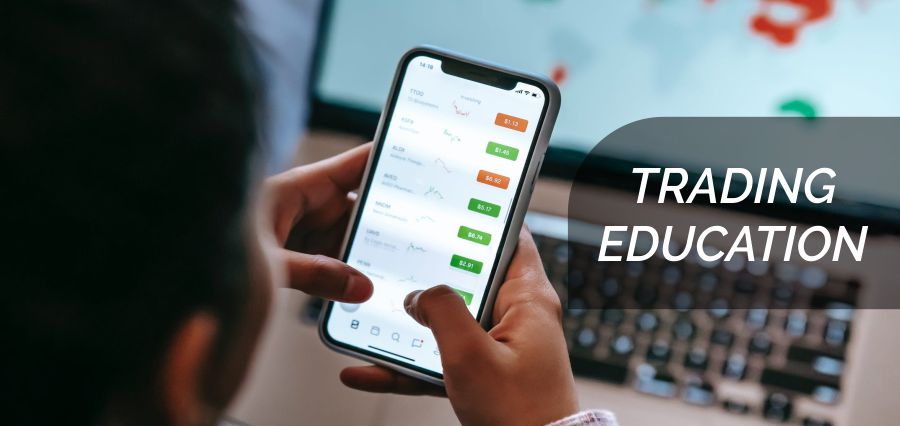
Importance of Educational Materials and Training Programs
Building a Strong Foundation
Educational resources serve as the building blocks for a solid understanding of Forex trading. They equip beginners with the necessary knowledge to navigate the market, understand trading strategies, and make informed decisions. Without a strong educational foundation, traders are more susceptible to making costly mistakes due to a lack of understanding of market dynamics and risk management.
Accelerating Learning Curve
High-quality educational materials and training programs can significantly accelerate a beginner’s learning curve. They offer structured learning paths that guide traders through the complexities of Forex trading, from basic concepts to advanced strategies. This structured approach to learning ensures that traders develop a comprehensive understanding of the market in a shorter timeframe.
Enhancing Trading Performance
Ongoing education is crucial for improving trading performance. Markets evolve, and new strategies and tools emerge. Continuous learning ensures that traders remain adaptable, enabling them to refine their strategies and improve their decision-making processes over time.
Evaluating the Quality of a Best brokers for beginners Educational Offerings
When assessing a broker’s educational resources, consider the following factors:
Breadth and Depth of Materials
A broker’s educational library should cover a wide range of topics relevant to Forex trading, from fundamentals to advanced technical analysis and strategies. The content should cater to different learning stages, providing value to both beginners and more experienced traders.
Formats and Accessibility
High-quality education comes in various formats to suit different learning preferences. Look for brokers that offer a mix of video tutorials, webinars, e-books, articles, and interactive courses. Additionally, ensure that these resources are easily accessible and available for free to all clients.
Expertise and Authority
Evaluate the expertise of the individuals or teams providing the educational content. Preferably, the materials should be created by experienced traders or industry experts with a proven track record. This ensures that the information is not only accurate but also practical and applicable in real trading scenarios.
Interactive Learning Tools
Interactive tools such as quizzes, trading simulators, or demo accounts complement educational materials, allowing traders to apply what they have learned in a risk-free environment. These tools help reinforce learning and build confidence before transitioning to live trading.
Community and Support
A broker that fosters a community through forums, discussion groups, or social trading platforms can enhance the learning experience. Being able to interact with fellow traders and share experiences or strategies can provide additional insights and support, especially for beginners.
Demo Accounts and Practice Trading
For beginners in the Forex market, the bridge between theoretical knowledge and real-world trading proficiency is often built with the help of demo accounts. These accounts are invaluable tools that simulate live trading environments without the risk of losing real money. This chapter will outline the benefits of using a demo account and offer tips for maximizing the effectiveness of practice trading.
Benefits of Using a Demo Account
Risk-Free Learning Environment
Demo accounts provide a safe haven for beginners to apply their theoretical knowledge in practice. By simulating real market conditions, they allow traders to experience the dynamics of Forex trading, including price movements and volatility, without the fear of making costly mistakes.
Familiarization with Trading Platforms
Each trading platform comes with its unique set of tools and features. Using a demo account helps traders become proficient in navigating their chosen platform, utilizing its analytical tools, and executing trades, ensuring a smoother transition to live trading.
Testing Trading Strategies
Demo accounts offer the perfect testing ground for new trading strategies. Traders can experiment with different approaches, analyze their effectiveness, and make adjustments without any financial implications. This experimentation fosters creativity and strategic thinking, essential traits for successful trading.
Understanding Emotional Discipline
While demo trading doesn’t fully replicate the emotional pressures of trading with real money, it can introduce beginners to the psychological aspects of trading. Learning to manage emotions, such as fear and greed, in a simulated environment can build emotional resilience and discipline.
Tips for Effective Practice Trading
Set Realistic Goals
Treat your demo account as if it were a real account with actual capital. Set realistic trading goals and parameters, including risk management rules, to create a meaningful practice experience that closely mirrors live trading.
Keep a Trading Journal
Documenting your trades, strategies, and emotions in a trading journal is invaluable. Reviewing your journal can offer insights into your trading habits, decision-making processes, and areas for improvement.
Use Demo Trading to Develop a Trading Plan
A well-thought-out trading plan is vital for navigating the Forex market effectively. Use your time in the demo environment to develop and refine your trading plan, including entry and exit criteria, risk management techniques, and how to respond to different market conditions.
Transition to Live Trading Gradually
Transitioning too quickly from a demo to a live account can be overwhelming. Start with a small amount of capital and consider using a micro or mini account to minimize risk while you adjust to the emotional aspects of trading with real money.
Limit the Duration of Demo Trading
Making Your First Trade
While demo accounts are excellent for learning and experimentation, spending too much time trading in a risk-free environment can lead to complacency. Set a timeframe for your demo trading experience to ensure you move on to live trading with confidence and a realistic perspective on risk.
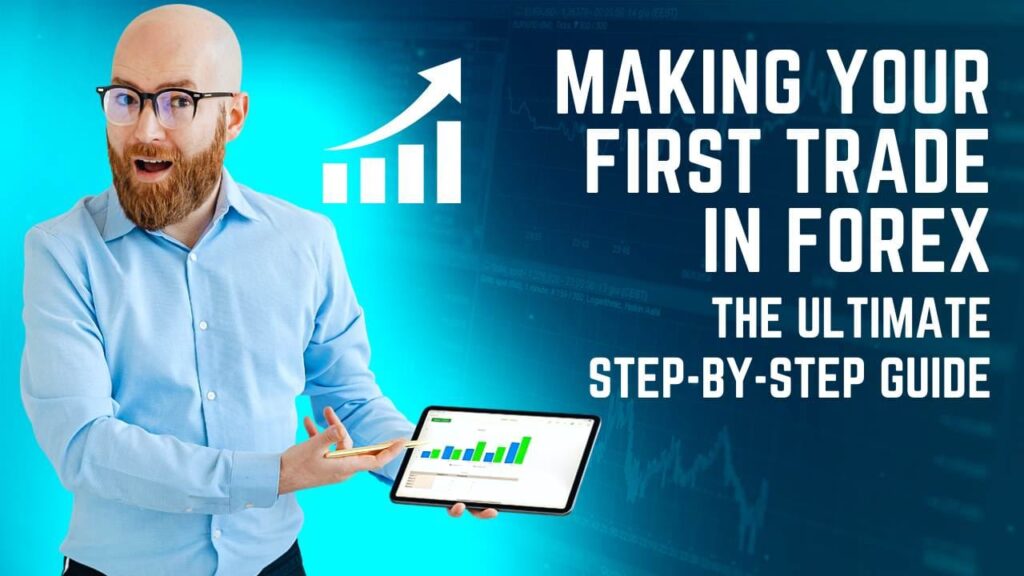
Venturing into the Forex market for the first time can be both exciting and daunting. The transition from learning and practicing to making your first real trade is a significant milestone. This chapter provides a step-by-step guide to making your first Forex trade, coupled with advice on common pitfalls to avoid, ensuring a smooth and informed entry into the trading world.
Step-by-Step Guide to Making Your First Forex Trade
Step 1: Choose a Reliable Forex Broker
Select a broker that is regulated, offers a user-friendly platform, and provides educational resources and strong customer support. Ensure their trading conditions match your trading strategy and financial goals.
Step 2: Open and Fund Your Trading Account
After choosing a broker, open a trading account and deposit funds. Start with an amount you’re comfortable with and that aligns with your risk management strategy.
Step 3: Install and Set Up Your Trading Platform
Download and install the trading platform supported by your broker, usually MetaTrader 4/5 or cTrader. Spend time familiarizing yourself with its features and tools.
Step 4: Conduct Market Analysis
Before making a trade, analyze the market to identify potential trading opportunities. Use technical analysis (charts and indicators) and fundamental analysis (economic news and events) to inform your decisions.
Step 5: Choose a Currency Pair
Select a currency pair that fits your analysis and trading plan. As a beginner, you might start with major pairs like EUR/USD or GBP/USD due to their liquidity and lower spreads.
Step 6: Decide on Your Trade Size
Determine the size of your trade, keeping in mind the risk management rules you’ve set. It’s advisable to start small to minimize risk.
Step 7: Set Stop Loss and Take Profit Levels
Before executing your trade, set stop loss and take profit levels. These risk management tools are crucial for protecting your capital and securing profits.
Step 8: Place Your Trade
With your analysis complete and risk management in place, open your trading platform, select your currency pair, enter your trade size, and place your trade. Monitor your trade as needed, adjusting your stop loss and take profit levels according to market movements.
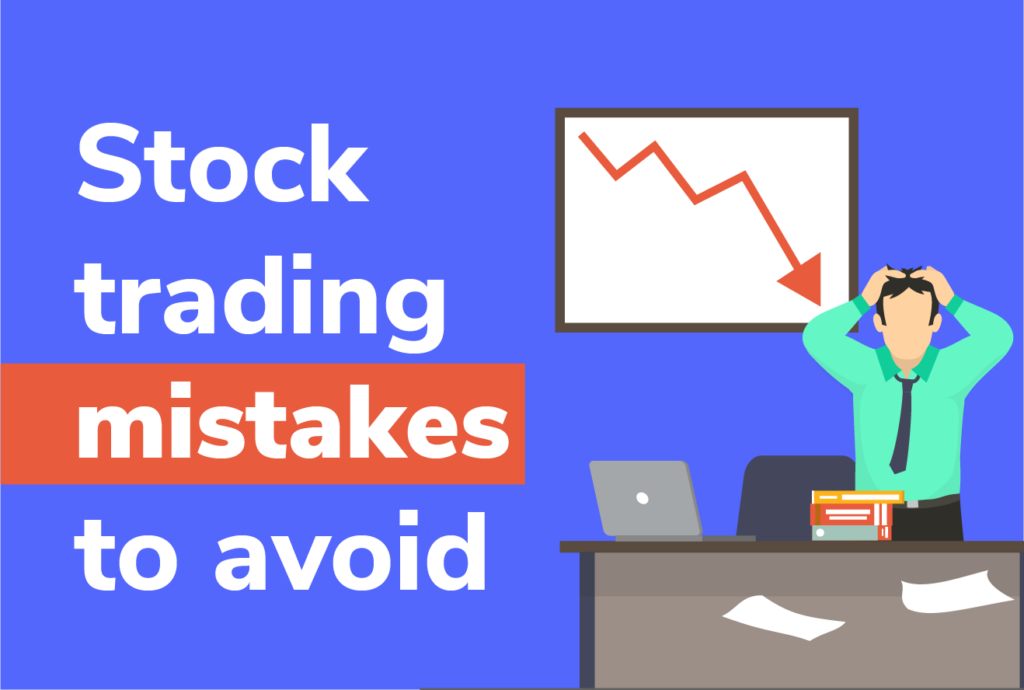
Common Pitfalls to Avoid as a Best brokers for beginners
Overleveraging
Using excessive leverage can amplify profits but also losses. Stick to lower leverage to manage risk effectively.
Ignoring Risk Management
Always use stop loss orders to limit potential losses. Risking more than 1-2% of your account balance on a single trade can lead to significant drawdowns.
Emotional Trading
Emotions like fear and greed can lead to impulsive decisions. Stick to your trading plan and make decisions based on analysis, not emotions.
Overtrading
Making too many trades in a short period can erode your capital through spreads and commissions. Be selective and trade based on clear signals aligned with your strategy.
Neglecting Education
Continuous learning is vital. The Forex market evolves, and so should your knowledge and skills. Keep up with market trends, analysis techniques, and economic events.
Chasing Losses
Attempting to recover losses by increasing trade sizes or frequency often leads to further losses. Accept losses as part of trading and focus on your long-term strategy.
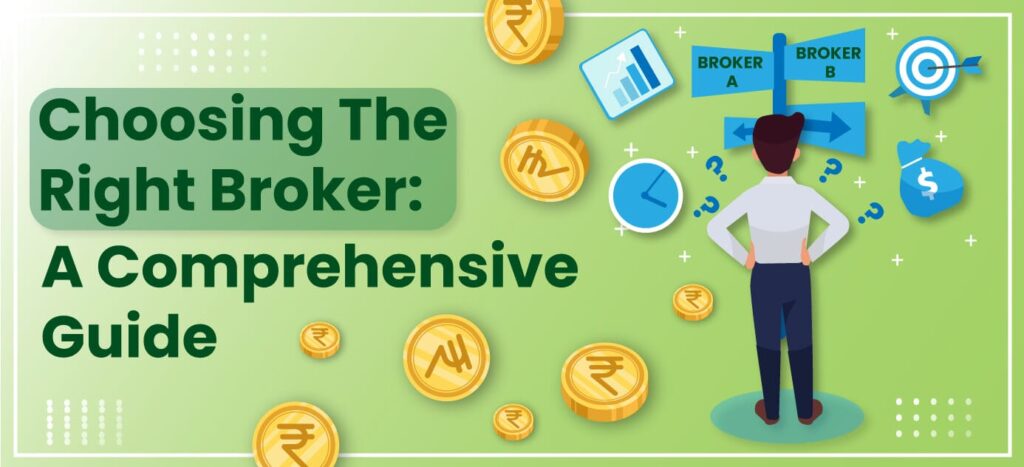
Choosing Your First Best brokers for beginners: A Step-by-Step Guide
Selecting the right Forex broker is a crucial decision that can significantly impact your trading journey. This chapter provides a detailed step-by-step guide, along with a checklist for choosing a broker, ensuring you make an informed choice. While specific broker recommendations can vary based on current market reviews and trader experiences, we’ll discuss how to identify brokers that are generally considered beginner-friendly based on comprehensive reviews.
Checklist for Choosing a Broker
1. Regulatory Compliance
- Ensure the broker is regulated by reputable authorities (e.g., FCA, CySEC, ASIC). Regulatory compliance provides protection against fraud and malpractices.
2. Account Types Offered
- Look for brokers that offer accounts suitable for beginners, such as those with low minimum deposits and the option to trade micro-lots.
3. Trading Platform
- The broker should offer a user-friendly and reliable trading platform. MetaTrader 4/5 and cTrader are popular choices that provide robust tools and resources.
4. Educational Resources and Support
- A good broker for beginners offers extensive educational materials, including tutorials, webinars, and articles, as well as responsive customer support.
5. Fees and Spreads
- Compare the fees, spreads, and commission structures. Lower costs are beneficial, but they should not be the sole criterion for decision-making.
6. Deposit and Withdrawal Options
- Check the ease of funding and withdrawing money from your account. Consider the methods available, associated fees, and processing times.
7. Demo Account
- Ensure the broker provides a demo account to practice trading without risking real money, allowing you to familiarize yourself with the platform and test strategies.
8. Customer Service
- The quality of customer service is critical. Test the broker’s support responsiveness and helpfulness before committing.
Recommended Best brokers for beginners Based on Comprehensive Reviews
While specific broker recommendations can change over time due to market conditions and company policies, beginners should look for brokers that consistently receive high marks in the following areas:
- Regulation and Safety: Choose brokers that are well-regulated by reputable authorities.
- User-Friendly Platform: Platforms that are intuitive for beginners, such as MetaTrader 4/5, which offer extensive support and resources.
- Educational Content: Brokers that invest in comprehensive educational resources signal a commitment to their clients’ success.
- Demo Account: A broker offering a demo account demonstrates confidence in their service quality, allowing new traders to practice without risk.
- Customer Reviews: Pay attention to current user reviews and testimonials, focusing on those from traders with similar profiles and needs as yours.
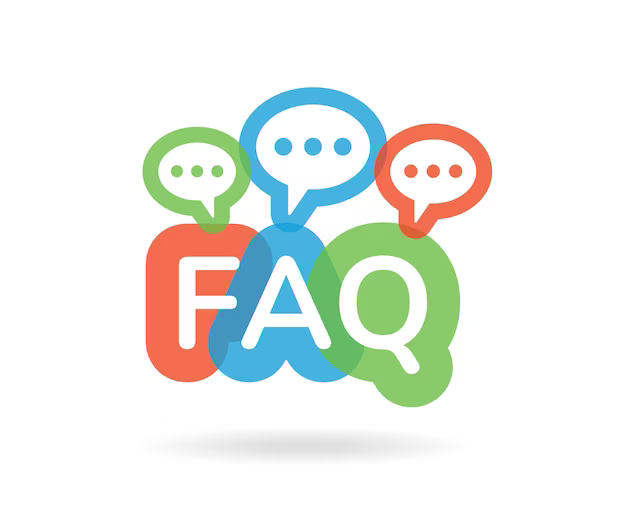
FAQs for finding Best brokers for beginners
- What is Forex Trading?
Forex trading involves exchanging one currency for another, predicting currency value movements. - Why is Choosing the Right Broker Important?
The right broker provides the tools, resources, and support necessary for a successful trading journey. - What Should I Look for in a Broker?
Key features include educational resources, a user-friendly platform, customer support, and demo accounts. - How Do I Verify a Broker’s Regulatory Status?
Check their website for regulatory body logos and verify these on the respective regulatory body’s website. - What’s the Difference Between Account Types?
Account types vary mainly in terms of transaction size and required initial deposit. - How Do Fees and Spreads Affect My Trading?
They determine the cost of trading, affecting profitability. - What is Leverage?
Leverage allows you to trade larger amounts with a smaller initial investment. - Why is Customer Support Important?
It ensures you have assistance whenever you encounter issues or have questions. - Can Beginners Trade Successfully?
Yes, with the right broker, education, and tools, beginners can trade successfully. - How Often Should I Review My Broker Choice?
Regularly reviewing your broker ensures they still meet your evolving trading needs.
Embark on your trading journey with TradeChamp.net as your guide. Together, we’ll find the best brokers for beginners, ensuring your path to Forex trading is not just successful but also enlightening. Remember, the right broker is your first step towards trading triumph.

